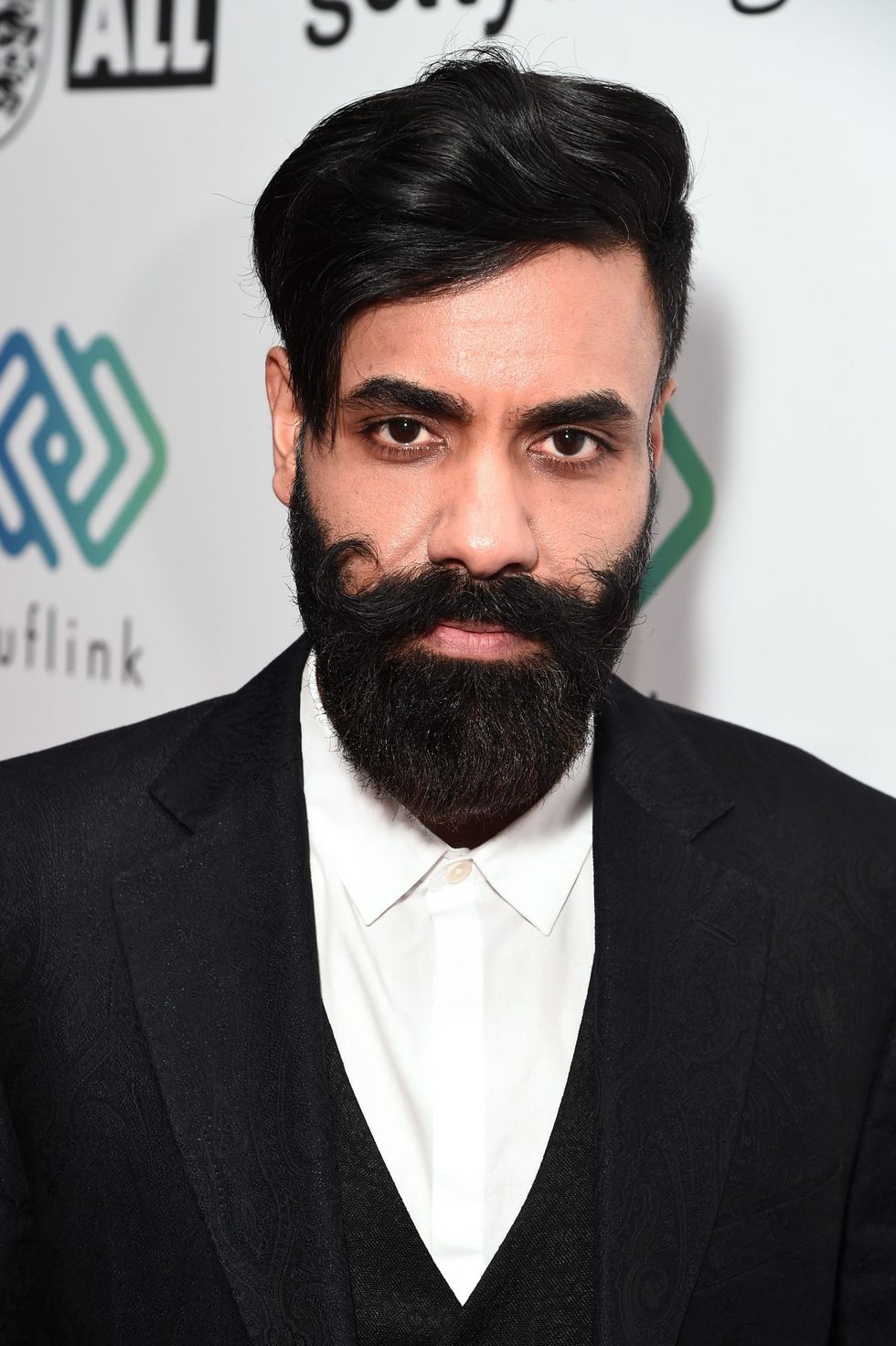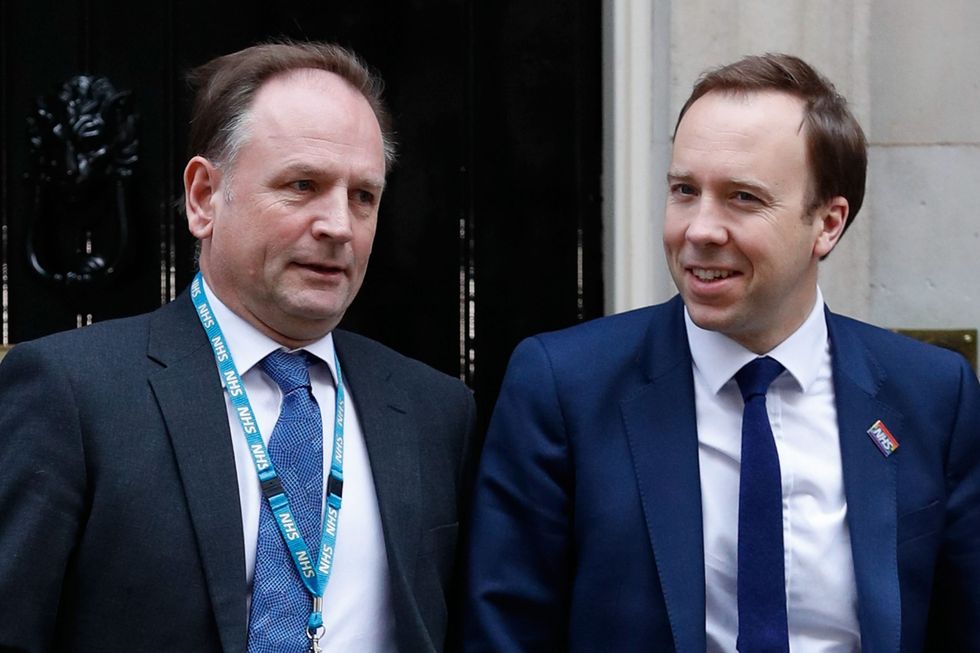“Vaccine hesitancy” because Asian communities do not trust government, says top doctor
Exclusive
By Barnie Choudhury
Politics is interfering “far too much” with caring for sick patients during the pandemic.
That is according to the chair of the British Medical Association, Dr Chaand Nagpaul.
Speaking during the second Ramniklal Solanki Pioneers Project Fireside Chat, the BMA chair said the government must acknowledge that structural racism existed in the NHS and was having a direct impact on treatment.
“Politics has interfered far too much,” he told a virtual global audience. “As a doctor, it has interfered with the health service for far, far too long.
“There's no doubt that it's hard to reconcile the political statement in September that said that structural racism has no part to play with what has been a clear government commissioned scientific report from public health doctors who actually do understand inequalities.”
The interview was part of a series of events organised by the University of Southampton’s India Centre and the Asian Media Group, which owns Eastern Eye.
“When the government says it's following the signs, well, it really does need to follow those clear messages. Scientific advisers in the government also highlighted the structural racism that has impacted on ethnic minorities during COVID.
“That was in July. So, I remain mystified as to why we're not seeing this. It's obviously a political judgement, and certainly not a scientific one.”
No confidence
Nagpaul also said that south Asians and black minorities had no confidence and did not
not trust the government’s handling of the pandemic.
“There has to be an open acknowledgement that there is structural inequality, that there is bias, that there is an impact that is negative on ethnic minority people in my case in terms of the health service,” he said.
The GP from north London also rejected the term “vaccine hesitancy”, often used to describe minority communities who refused to have their jab.
“I don't believe that any ethnic minority person I've met is hesitant about a medical intervention that may save their lives, that may save the lives of their family member, or their community, especially given they've seen the devastating impact of COVID.
“What we are witnessing is a lack of trust, a lack of confidence in government messaging that has existed throughout the pandemic. We knew about this back in June, when Public Health England highlighted the need for culturally competent messaging.
“The government didn't address that at that moment in time. And now we're seeing the impact of that lack of trust and confidence and recording it vaccine hesitancy. That's just not correct.”
The Department of Health and Social Care refused to comment on claims that politics was getting in the way of treating patients during COVID.
It also did not answer the specific question of whether vaccine hesitancy in some ethnic groups could be caused by a lack of trust in the government.
Instead, a government spokesperson said, “Throughout this unprecedented global pandemic we have been guided by advice from of scientific and medical experts.
“There is clear evidence COVID-19 has disproportionately impacted certain groups and we are doing everything we can to protect and minimise the risk to the most vulnerable individuals and communities.
“We are also working closely with the NHS and faith and community leaders, to support and reach people who are eligible for a vaccine, by providing advice and information in over thirteen languages, as well as partnering with local charities and directors of public health.”
Denied vaccination
Nagpaul’s comments coincide with criticism from the comedian Paul Chowdhry, whose mother recently passed away and was refused the vaccine.

On Thursday (25 February) he Tweeted, “My mum was turned down for the vaccine when she asked, despite being in what the government described as a high risk group, as well as caring for my elderly father during his radiation treatment. Tragically for her, and us, she was unnecessarily refused”.
In the same thread, Chowdhry wrote, “My family aren’t anti-vaxxers; neither are most people I know from the ‘BAME’ community. In fact, I know more non-Asian anti-vaxxers.”
On Friday (26 February) the government published its second report on COVID-19 disparities.
It said that Office for National Statistics data from early December 2020 to early January 2021, showed that fewer than half (49 per cent) of black adults reported they were likely to have the vaccine.
Covid disparity
It also quoted the latest OpenSAFELY data which showed that approximately 60 per cent of black people over 70 had been vaccinated. This was compared to 75 per cent for south Asians and nine in 10 white people.
“It goes back to the issue of categorising prioritisation on an age basis, without looking at other risks of an individual,” said Nagpaul.
“I don't know, Paul's mother's specific medical circumstances, but there are many, many, many ethnic minority people who are at high risk and have been at high risk, who don't fit the need for priority groups who have other medical conditions, who are by their nature of being from an ethnic minority at higher risk of COVID.
“I've been very open that that should have been addressed as part of the vaccination programme. Things have actually now improved, because there is now a risks calculator being used that is using ethnicity as part of the risk.”
The government report also said that disparities “have improved for some ethnic groups including Black Africans, Black Caribbean, Chinese and Indians but have worsened for Pakistanis and Bangladeshis.”
“Structural discrimination has been present for decades, and it isn't that COVID has somehow highlighted something new, it has reinforced those inequalities,” responded the BMA chair.
“I don't think that the government acted promptly with what we uncovered last April onwards. I think that back in June, when the Public Health England review was published, it was very clear that we needed to do much more about engaging with communities building trust, building confidence, having culturally competent messaging.
“And in fact, as the months went by, we didn't see any change. The messaging was woefully culturally insensitive.”
The Department of Health and Social Care refused to comment on claims that it accepted that structural racism existed as a factor for minorities being disproportionately affected by the virus in the June 2020 PHE review, but rejected the idea in the October race disparity report.
A week before the government’s latest disparity report, DHSC updated its list of people shielding. It said it was “using a new predictive risk model which combines factors including underlying conditions, age, sex, ethnicity, body mass index and the postcode where people live and its link with deprivation.”
“The latest data shows that this is not a one-size-fits-all situation,” acknowledged equalities minister, Kemi Badenoch. “Our response will continue to be driven by the latest evidence and data and targeted at those who are most at risk.”
Unconvincing government
The man who leads the doctors’ union remains to be convinced.
“The science was very, very clear that there were people who are at high risk of infection and the consequences of it, but that were not in the priority groups,” Nagpaul said.
“The GCP [good clinical practice] guidance has a couple of sentences that says that allows for local flexibility to address inequalities, as they relate to ethnicity.
“Those lines are there, but they're buried way in a document where everyone was chasing to hit the first four priority groups by the middle of February. That is what everyone was doing. There was no local flexibility being used.
“And I think that was really unfortunate, because large numbers of people were not being prioritised for the vaccine when they should have been.”

Throughout the pandemic the BMA chair has written several times to the head of NHS England, Sir Simon Stevens and health secretary, Matt Hancock, complaining about the lack of protection for his members.
The association said that 90 per cent of doctors who have died working on the COVID front line were from black Asian minority ethnic heritage.
“I have to be highlighting those statistics,” he said. “I shouldn't be having to highlight them. What Simon Stevens, what NHS England, what the government needs to be doing is saying this is unacceptable.
“We cannot preside over such inequality. You need to get to the heart of the problem, and that is not about a tick box.
“It's not about saying, as we found during COVID, an exercise that said we're going to just now risk assess everyone. It is about actually making transformational change in terms of those root structural causes.”
Joined-up thinking
Another prominent south Asian who is also critical of the government is the former chief prosecutor in the north west of England, Nazir Afzal.
Afzal’s brother, Umar, died from the virus last April.
In January he Tweeted that he had instructed his lawyers to see whether what the prime minister “did or didn’t do amounts to gross negligence or misconduct in public office & what consequences should follow”.
“People have died or suffered serious harm that could have been prevented if the government had been prepared and responded sooner and in a more joined up way,” Afzal told Eastern Eye.
“They saw what was happening elsewhere in the world and failed to learn lessons from the countries that have handled it best.”
The BMA chair is also concerned that structural racism is affecting the future of the black and Asian doctors in the NHS.
“If I look at the NHS and we see unequal access to medical schools, and we're doing a lot of work in trying to widen participation.
“When you start at medical school, a young aspiring doctor, you're faced with up to four times the level of bullying and harassment if you come from an ethnic minority background, that is what our statistics have shown.
“When you then look at the career in medicine from the career of a young doctor, there is absolutely unequivocal evidence that your chances of passing exams, postgraduate exams are lower if you come from ethnic minority background.
“If you've been trained in the UK, you have lesser chances of being shortlisted for more senior jobs, which is why you see far fewer BAME doctors in consultant posts. So, you've got this differential right from an early age, and that that is because of structural racism, the structural inequalities.”
The Department for Health and Social Care and NHS England refused to answer when we asked them to comment on whether there was a culture of bullying and structural racism stopping black and Asian doctors progressing to senior posts.
Analysis: What does the data reveal?
As of 25 February 2021, almost three-quarters of a million south Asians have had their first virus vaccination, according to NHS England data.
The 2011 Census data, which is 10 years out of date, showed 3.8 million south Asians lived in England and Wales.
That suggests that about 19 per cent have had their first dose.
https://public.flourish.studio/visualisation/5437264/
Almost four per cent of south Asians who have had their first vaccination have been given their second.
That compares to 3.4 per cent and 2.1 per cent for white and black people respectively.
https://public.flourish.studio/visualisation/5437430/
As of 17 February 2021, a third of south Asians aged between 16 and 69, who are shielding, have been vaccinated, according to OpenSAFELY, a collaboration between the University of Oxford, and the London School of Hygiene and Tropical Medicine.
https://public.flourish.studio/visualisation/5437940/
For 70-79 year olds it is higher at 78.6 per cent.
https://public.flourish.studio/visualisation/5438087/
For those aged 80 and above it is also a similar percentage at 78.8 per cent.
https://public.flourish.studio/visualisation/5438182/
“One of the facts around our political system is there are so many different players,” said the chair of the BMA, Dr Chaand Nagpaul. “If I'm speaking to NHS England chief executive, Simon Stevens, I'm not speaking to the Department of Health in the same context.
“Then you've got the Number 10 policy unit, which is different from the Department of Health. So, there are different players. I don't know why, because to me, it just seemed so clear that what we witnessed last summer was so wrong.
“We saw such inequality in the way in which this virus impacted on certain sectors of the community.
“I still cannot understand why more hasn't done at the time, and why there was such tardiness in the response. It remains a mystery why we haven't seen the changes that were necessary.”




